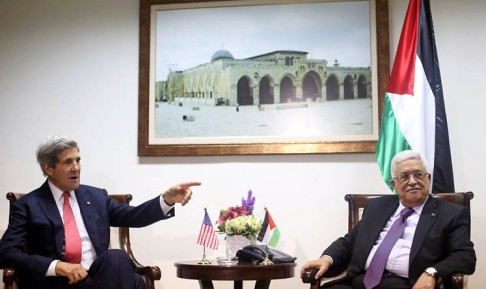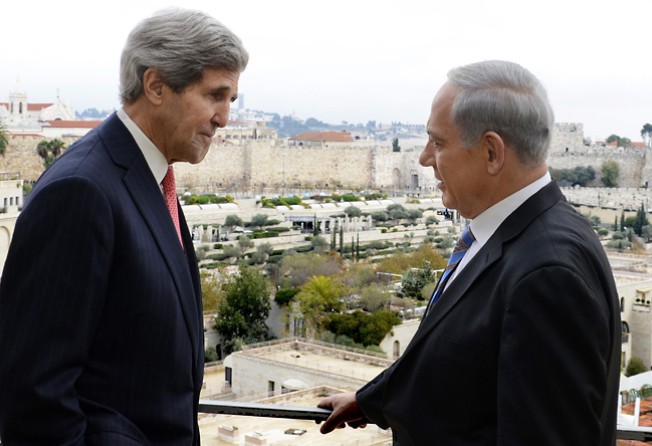
Israelis, Palestinians face difficult choices as US envoy John Kerry visits
Secretary of State John Kerry is presenting his own ideas for the outlines of a peace deal

As US Secretary of State John Kerry returned to the Middle East yesterday, America's message to the Israeli and Palestinian leaders was clear: it's time to start making hard decisions.
Kerry is bringing his own ideas for the outlines of a peace deal, and early indications are that the plan will include hard-to-swallow choices for both sides.
Israeli Prime Minister Benjamin Netanyahu would probably be asked to recognise Israel's pre-1967 war frontier as the starting point for border talks with the Palestinians, an ideological reversal that would put him on a collision course with his hardline base.

Palestinian President Mahmoud Abbas fears he will be pressured to recognise Israel as the homeland of the Jewish people, a step he believes would abrogate the rights of Palestinian refugees and their descendants.
A senior State Department official said Kerry would not impose ideas or seek final answers on this trip. Instead, he is allowing time for debate during the visit. Kerry was due to meet Netanyahu yesterday and was scheduled to meet Abbas today.
The official suggested that the leaders would eventually have to decide whether they were on board and that qualified acceptance watered down by reservations was not sufficient.
Israeli-Palestinian negotiations resumed last summer, and just four months remain until a US-set target date for a final agreement.
Underlying the ongoing impasse is the lack of agreement on ground rules. Kerry hopes that progress will be possible once the two sides agree on the outlines of a deal. Kerry has kept his ideas for a framework under wraps, but has said the contours of a deal are known after two decades of intermittent negotiations.
The US says a Palestinian state should be established alongside Israel, with the border between them based, with some modifications, on Israel's 1967 frontier, before it captured the West Bank, Gaza Strip and east Jerusalem. The Palestinians seek all three areas for their state, but agree to minor land swaps.
"I think that if you're going to be realistic about what the solution is, it's hard to see how you can end up anywhere else than there," the State Department official said on Tuesday.
Netanyahu has so far refused to accept the 1967 lines as a reference.
Doing so would imply Israeli willingness to partition Jerusalem and its sensitive religious sites, give up most of the West Bank and uproot tens of thousands of close to 600,000 Israeli settlers living on occupied land. Such ideas are anathema to Israel's right-wing.
Israel withdrew from Gaza in 2005, following a dramatic decision by Israel's most famous hawk, then-prime-minister Ariel Sharon.
Netanyahu has sent conflicting signals, accelerating settlement plans in recent months but also telling Likud legislators this week that a leader is measured by his ability to make tough decisions.
"If he decides to say yes to the '67 lines, he has to say no to his party," said commentator Akiva Eldar, who writes for the regional news website Al-Monitor. "This is as difficult [for him] as it is for … an Orthodox Jew to eat pork on Yom Kippur. It goes against everything he believes in."
For Abbas, the biggest concern is that he will be asked to make concessions on the fate of refugees by recognising Israel as the Jewish homeland, his aides said. Hundreds of thousands of Palestinians fled or were expelled in the war over Israel's creation in 1948. These refugees, and their descendants, now number several million people.
Israel has emphatically ruled out absorbing large numbers of refugees, saying this would dilute the state's Jewish majority.
Aides of Abbas said they did not know what Kerry would propose on this trip. During a speech last month, Kerry listed "recognition of Israel as the homeland of the Jewish people" as one of the elements of a deal.
Israeli officials say they need such recognition as proof of Palestinian intentions. "We have to know that once a Palestinian state is to be established, it is going to end the conflict and not just be a platform for continuing conflict," said Regev, the government spokesman.